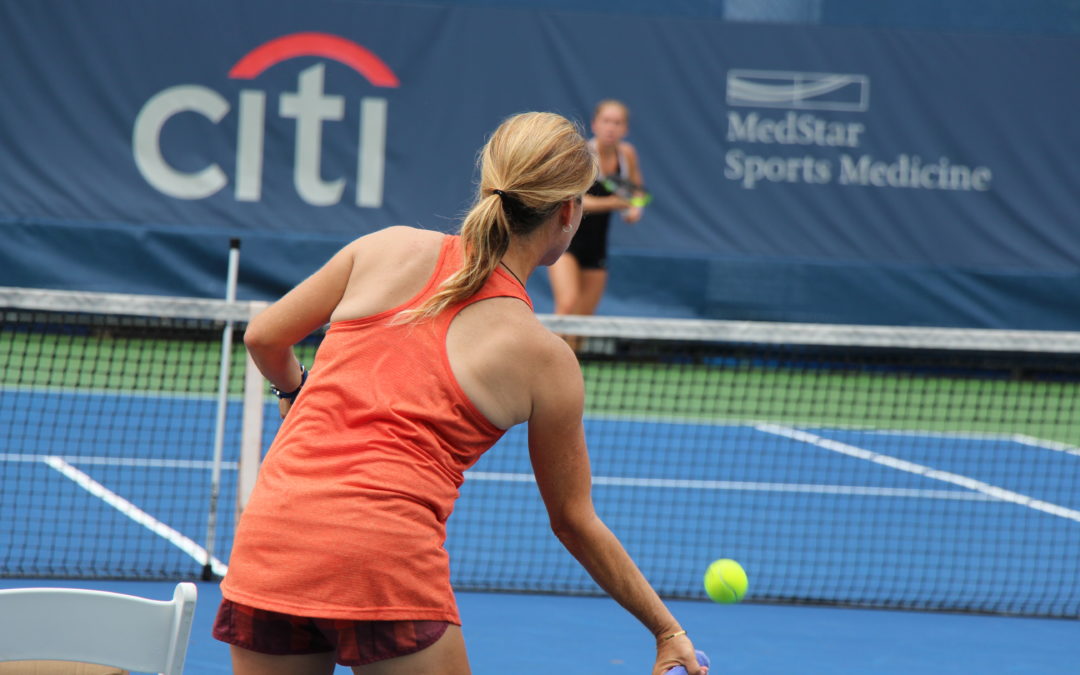Every coach’s story is different, but Jamie Kirkman’s path to a career in coaching is perhaps one of the most unique. When shoulder reconstructive surgery derailed a playing career at 15 years of age, Kirkman immediately knew he aspired to be a coach.
At just 16-years-old, Kirkman branched out and started his own coaching business from the ground up. Before he knew it, he was training some of Australia’s brightest junior stars, which led him to lease his own training complex at 21 and eventually move to Florida to compete against and learn from the best coaches in the world.
Today, Kirkman is known as one of the leading experts on player development and has molded some of the nation’s top juniors, who have gone on to play in Junior Grand Slams, NCAA Division I, and even the WTA and ATP Tours.
According to Kirkman, the key to developing the some of the nation’s top juniors is getting to know each player on an individual level. “As a coach, you have to be part sport psychologist as well. It’s about learning each player individually. I don’t think there’s a blanket approach with everybody. You have to work out what makes the player tick, the reason why they’re playing, and what they want to achieve. Once you understand that, then you can push the right buttons that make them want to get better or work harder,” he explained.
Kirkman credits his uncanny ability to get to know his players on a deeper level with an aptitude for reading and understanding people for who they are, a skill that he has been able to pick up both from being a former player and many years of coaching experience. In fact, he believes being able to read people is an art all coaches should strive to learn.
Through the years, Kirkman has honed his ‘reading’ skills by being unafraid to try many different approaches with his players. “I think too many coaches think just one way works, and it doesn’t. I’m not scared to try five different approaches and fail at four of them until I find the one that works for that specific player,” he said.
Kirkman also believes that variety is vital for developing young tennis players to their full potential. Too often, young athletes become disinterested in the sport or simply burned out because they have been doing the same training for too many years.
“Change things up. You’ve got to make it different and keep changing,” urged Kirkman. “Not every day is hitting tennis balls. Some days I’ll do footwork or something different that keeps them wanting to come back.”
In addition to keeping training fresh, Kirkman is also a huge proponent of goal-setting. He encourages his athletes to write down their dreams and turn them into goals. However, he believes it is important to set measurable objectives along the way towards achieving those lofty goals.
“Instead of saying, ‘I want to be a top-100 ITF Junior,’ we need to figure out the little goals that are steps towards getting there. We also have to make those little goals achievable,” Kirkman explained. “If the goals are always achievable, then you feel successful. I think too many coaches and parents set kids up for failure. They set lofty goals, and when the player does not achieve them, they’re seen as a failure.”
Kirkman does have one specific rule when helping his players set goals – don’t ever put rankings on the table. He firmly believes that rankings are unhealthy for junior players because each athlete develops at a different speed emotionally, mentally, physically, and technically.
Rather than striving for a specific ranking, Kirkman wants his players to set small objectives for each match, whether it be working on improving a forehand, backhand, or serve. “I’m not only concerned with the results of the match, I want them to be consciously aware of what we’re working on because juniors means nothing at the end of the day. If we’re working on a serve, that’s what I want them to focus on,” he said.
“If my player is comfortable with their first serve percentage, then that’s all that matters to me. That’s taking the results off the table. If you’re always thinking about the outcome of the match, that’s unneeded pressure,” explained Kirkman.
Above all, Kirkman believes in the power of connection with his tennis players. He strives to truly understand what each athlete hopes to get out of their playing career and connect with them on an individual level.
“Tennis and life is all about connecting, whether it’s one-on-one or in a big group, you have to know how to connect with each person,” said Kirkman. “Not everyone is the same, so you have to cater to everybody, but have the little relationships that form connections.”
***
To contact Jamie Kirkman, please call 941-724-3393.

